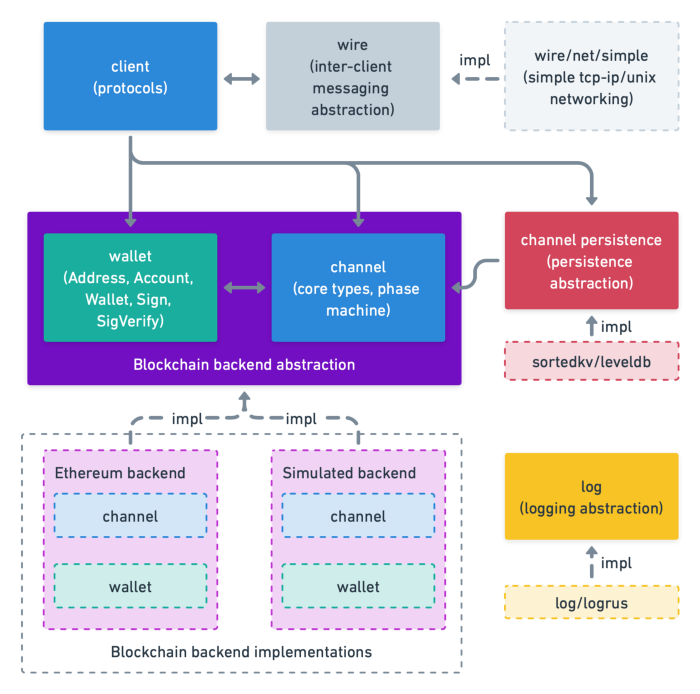Go-Perun
Go-Perun is an open-source library for building state channel applications on top of almost any transaction backend. It is designed with modularity in mind.
Project info
Disclaimer. This software is still under development. The authors take no responsibility for any loss of digital assets or other damage caused by the use of it.
Funding. The project is supported by the German Federal Ministry of Education and Research (BMBF) through the StartUpSecure grants program as well as the German Science Foundation (DFG), the Foundation for Polish Science (FNP), and the Ethereum Foundation.
Contact. Feel free to provide your feedback on the library via our GitHub page. For business inquiries you can contact us at info@perun.network. More information can be found at https://perun.network/.
Architecture
Abstract interfaces. At the core of the library is the client package which represents the fundamental protocols. A client interacts with its environment through abstract interfaces.
The transaction backend is represented by package wallet, which represents account logic and package channel, which provides the core data structures of a channel.
The peer-to-peer communication layer is represented by package wire.
Data persistence is provided through package channel/persistence.
Logging is provided through the package log.

Instantiation depending on the application context. When building an application, the abstract interfaces are instantiated with concrete implementations depending on the application context. By default, the library ships with an Ethereum adapter as the transaction backend, a TCP/IP adapter for client communication, a LevelDB adapter for data persistence, and a Logrus adapter for logging.
Tutorials
Payment Channels
In the payment channel tutorial, you will learn how to build a simple payment channel application that uses Perun channels for realizing fast and low-fee payment transactions.
App Channels
In the app channel tutorial, we guide you through the process of creating an app channel application where two players trustlessly play an interactive game with blockchain tokens at stake.
Virtual Channels
In the virtual channel tutorial, describe how a two-party Perun virtual payment channel can be established. Virtual channels are channels that are funded off-chain, from existing channels, and thereby they do not require any on-chain transactions to be created or settled.
Multi-Ledger Channels
In the multi-ledger channels tutorial, we will show you how to set up a multi-ledger channel where we swap ERC20 tokens from two different blockchains!
Blockchain Migration
In the migration tutorial, you will learn how to migrate the payment channel client from Ethereum to Polkadot.